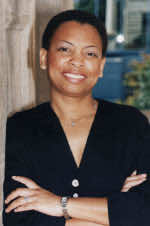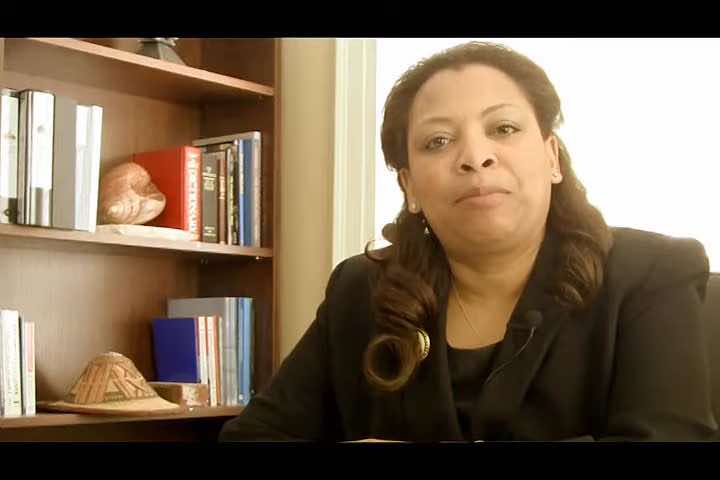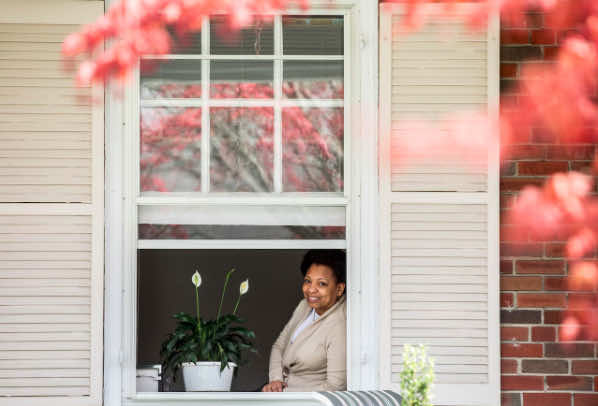Kecia Cunningham: Bodacious African American Trailblazer

Interview by Silk Jazmyne Hindus, December 11, 2024
Silk Jazmyne Hindus (SJH): Where did you grow up?
Kecia Cunningham (KC): I grew up primarily in Summerville, South Carolina. We transferred there as a Navy family when I was in the fourth grade. It was 1972 or 1974, something like that. Charleston Naval Base was a big deal. I attended Summerville High School, in Summerville, South Carolina.
SJH: Did you move around a lot as a kid, a Navy brat?
KC: Not really. There were a couple of moves beforehand. Then, Charleston, South Carolina. After a divorce, that’s kind of where my mom and the rest of the family stayed.
SJH: Where did you go to undergraduate and graduate school?
KC: I went to Wellesley College in Wellesley, Massachusetts, for my first two years. I finished at Agnes Scott College in Decatur, Georgia, which is how I got to Georgia. Decatur is basically the Atlanta area.
My mom, being an English teacher, really liked the notion of me going to a Seven Sisters school, so she wanted me to go to Wellesley College. Then, we had made a college visit to Agnes Scott, in Decatur, which is in the Atlanta area, and we fell in love with it. But she’s said, “Nope. You’re going to go to Wellesley.” That’s why I did my first two years in the Boston area. It was a very traumatic experience, to be totally honest.
I was a working class Navy brat. This was my first exposure to really wealthy people, to a lot of really wealthy African Americans. Having to navigate all of that, while figuring out how to live and how to survive, that was very difficult. It was also where I think I had my first brush with lesbianism.
Biographical Note
In 1999, Kecia Cunningham became the South’s first, openly lesbian, African American elected to public office when she won a seat on the Decatur, Georgia, City Commission. She served for sixteen years, and in 2013, she rose to mayor pro tem of Decatur.
She said, “Somebody got elected in 1999 in a small southern town!” Her lesbian partner, Lenny Lasater, called herself the “First Butch of Decatur.” The year after she got elected, Kecia was the Atlanta Pride Grand Marshall.
What Kecia embraces is that our existence alone makes a difference; sitting at the table makes a difference. That is how it started. Now, it’s all about “each one, teach one.”
Wellesley’s organization, called WOLF (Wellesley’s Organization of Lesbians and Friends) was pretty much “in your face,” and it was. I didn’t even know that I might be curious. But to me, it was like, “Wow!” After my second year, I came home for winter break. I was certainly full of myself, full of vim and vigor, and I was “Kecia!” My mother sat me down, and she said, “I don’t really like you anymore.” And I said, “Well, that’s your prerogative,” and I left the room.
Sure, I could have stayed at Wellesley College and become a doctor’s wife.
Or I could go to Agnes Scott College and become a lesbian.
I am a well-disciplined young woman. My mother was certainly used to me being disciplined. That was not what she was expecting as far as a response from me. Low and behold, spring semester comes around, my scholarships are not covering all of my tuition. Mom said, “Nope. I am not paying for what you’re becoming.” That’s how I got to transfer to Agnes Scott, which was where I originally wanted to go. My interior joke was, “Sure, I could have stayed at Wellesley College and become a doctor’s wife. Or I could go to Agnes Scott College and become a lesbian. It’s up me!” (Laughter)
SJH: I love that. I love that so much!
KC: That was a very decisive theme in my life, being able to go to Agnes Scott College. I think my exposure to life at Wellesley College, and how different people acted, how lesbians acted, at this small liberal arts college in the South, it made me realize that I was not going to be in the closet. No, there are different ways to be in the world. Now, as a sixty-year-old woman, I can look back and say, “Oh, that’s why I was the way that I was.” Because I had been exposed to a different way of life on campus.
I had an earlier girlfriend who got quartered by the Christian association at Agnes Scott College because we were spending so much time together. I was an upperclassman, and she was younger. The way that Agnes Scott College was at that time, my younger classmate, my younger girlfriend, was given a lot more privilege because she was with an upper-class person. We spent a lot of time together to the point that she had her own fire buddy on our hall. She was staying in the senior dorm, but she would get accosted in the bathroom by the Christian association. They were praying for her.
SJH: Do you feel that was because it was the South rather than in the North?
KC: I think I just came at it differently. If I hadn’t been exposed to WOLF, if I hadn’t been exposed to what Wellesley College was doing with different types of communities and so forth, I might have been different when I went to Agnes Scott College back then. Growing up in the South, you were polite; you were quiet. There were norms and those types of things. I think maybe the exposure to Wellesley opened my eyes to what life could be like. There were other classmates at Agnes Scott who were in the light, but they had been scared physically. They were told, “I know who you are, I know what you do, and if you do, I’ll get you kicked out of school.” This is the administration talking.
I was coming in like, “Yeah,” and they were like, “I’m not quite sure I can be friends with you because I’ve already been put on notice that if I act a certain way, I could be thrown out of school.” Agnes Scott College has had incredible growth in its acceptance and nurturing over that time frame. It’s very interesting to go back to campus. I’m on the alumnae association board; and I see the growth that the college has had in being able to accept people of color and different gender identities by the composition of the student body, administrators, professors, and all that.
SJH: Would you say that was the start of a level of your activism?
KC: I don’t want to overstate this. I wasn’t burning bras in the quad and all of that. But I think there probably was a certain amount of thinking to myself, “Oh, this is a new way of students interacting on campus, and maybe the winds of change were starting to blow.” There was a push for greater diversity in faculty and staff. There was a push for greater diversity in the student body. We ended up getting t-shirts made called “The Enlightened Coalition.”
SJH: Do you have a coming out story? And can you talk about your experience as a queer person: how you identify and move through the world?
KC: My favorite story was the Fourth of July during the Centennial of the Statue of Liberty. I was on a date with a male who was an Emory medical student in Atlanta. That day, in the newspaper, there had been a story about men wearing jewelry. He picked me up, and I made some comment about this stupid necklace he was wearing. He said, “You know what? You are too much!” And I said, “You know what? I am too much! Take me home.” That was my last date with a boy.
I went home where we were house-sharing, and we watched the celebration of the Statue of Liberty. That was my day of independence. From that point on, I was a practicing lesbian. Many years later, I decided to look at the “b” side of life. Here I am now, happily married to a man. Who knew?
This is a smart African American woman, and she’s not backing down.
What I embrace is that our existence alone makes a difference;
sitting at the table makes a difference.
SJH: What is activism to you?
KC: An author, I wish I could remember her name, talked about a spectrum of life. Sometimes the folks are out there leading the charge, and you can figure out where you fall in the spectrum of activism. With your gender expression, or your sexuality, you need kind of the whole prism. I really don’t think of myself as an activist. I think of myself as living my life; and if my mere existence can be seen as something new, or as a crack in the ceiling, or making a statement, then that’s where I am.
I have a hard time accepting the roles because I wasn’t leading anything, I wasn’t picketing or doing that type of direct thing. I was living my life, and living my life with integrity. If you asked, I was there. This is a smart African American woman, and she’s not backing down. What I embrace is that our existence alone makes a difference; sitting at the table makes a difference. Exposure to different types of people broadens the experience that other people have of what it means to be African American, female, queer, lesbian, bisexual, transgender, all those things.
SJH: The word that came to mind as you were speaking was “authentic.” Being our authentic selves. We need that not only for ourselves and our own sense of being, but for society, for children to see. Why do you think others consider you an activist?
KC: I was the first of some things. Probably my biggest claim to fame was that I was the first, openly gay African American to be elected to office in the Southeast. That was my banner, thank you very much! I think that probably opened the door. The whole notion of being “open.”
At the time, some of the gay press didn’t think I was open enough because that was not my leading salvo into the world. This includes Southern Voice, which was a gay newspaper in Atlanta. It was like, “Oh, she’s been in the closet.” And I was like, “I’ve been in your paper several times. I’ve been on the cover of your paper. You cannot now say you didn’t know that I was a lesbian because you reported on me as a lesbian.”
Somehow, I didn’t pass the “open,” the coming out story, the way that certain members of the community, whatever the community is, may have wanted. How is that? That may have been the barn burner, but all you had to do was look at my life. Anybody who saw me and Lenny Lasater, it was obvious that: “There is something going on.”
Lenny was a butch before being butch was cool. I was a femme, and we were a couple for a long time before I took office. She was the one who was out in the field day to day with you all when I was at work on the campaign trail. She was the one in her overalls, wearing my campaign buttons, and seeing people who may or may not have liked the fact that I was running for office.
SJH: What motivated you to run for office?
KC: It’s really very funny. In the city of Decatur, Georgia, which is where I ended up moving after I spent a little time in Atlanta. I ended up buying a house in Decatur with a girlfriend, moving away, and then coming back. There were some changes that were happening on the Decatur school board that made me uncomfortable and unhappy.
I remember there was a morning when I was taking a shower, and I had this thought, “Oh, I’m going to have to find another small town to move to.” Never thinking that I would be part of the solution, let alone being elected. I had already had my, “I’m not sure I’m down with what the city is leaning toward, specifically with the school board.”
Mayor Elizabeth Wilson, who happened to be the first African American and the first woman
to be elected to the City Commission in Decatur, had her eye on me.
At the same time, I was volunteering. I was on the Development Authority Board. Unbeknownst to me, Mayor Elizabeth Wilson, who happened to be the first African American and the first woman to be elected to the City Commission in Decatur, had her eye on me. She had a dinner that I couldn’t attend. At that dinner, she had gathered some of the African American power brokers. She said, “I’m going to be retiring, and I want Kecia to run for my seat.” A couple of weeks later, she called me to her dining room table, which was, really, the seat of power. That’s where everything happened for Mayor Wilson—at her dining room table.
SJH: (singing) “The room where it happened…”
KC: Exactly! I want to be in the room where it happened. Mayor Wilson basically said, “I’m going to be retiring, and I’d like you to run for my seat.” To which, of course, I was surprised. I had never thought about running for office. I thought, ok, I mean she is an incredible woman that I hold in such awe and esteem and respect. You talk about glass ceilings and breaking through, about being an activist in her quiet way, and sometimes in her loud way.
We were at the dining room table, and I said, “Well, Mayor Wilson, I am certainly humbled. But there are some things you need to know about me. First, I don’t know my neighbors very well.” Meaning, I don’t know a lot of people. And she said, “That’s ok.” Then, I said, “Well, I don’t have a church home.” And as you know, being African American in the South, you’re supposed to have a church home, and you’re supposed to be active in the church. She said, “Well, that’s ok.” I thought to myself, “Wow, ok. We’re throwing bombs at you to dissuade you from this…” And then, I said, “Well, Mayor Wilson, I’m a lesbian.” And she said, “Well, that’s ok.” She took me under her arm. I was her protégé. We campaigned together, and that’s how I won. In a three-way race with no runoff. That started it.

SJH: That is amazing!
KC: That’s all about “each one, teach one.” The care and love that she showed me to protect that one seat that the City of Decatur had; and, at the same time, for her to notice something in me that she felt I would be able to carry on that mantle… It is humbling.
Note: “Each one, teach one” is an African American proverb that originated in the USA during the time of slavery. When Africans were denied education, including learning to read, the saying buoyed them by emphasizing the significance of sharing knowledge with others.
I mean, we went from me thinking I needed to move to being elected to the city commission as mayor pro tem. What she brought along was her political machinery. I had somebody who was raising money, I had somebody who was managing my campaign, and I didn’t have to worry about any of those things.
SJH: When you shared, “I’m a lesbian,” and she said, “That’s ok,” we’ve got to get this work going. Once you won, and you were in office, how was your experience being out as a queer person operating in this space?
KC: Fortunately, the City of Decatur is a relatively small town. We had five elected commissioners, all of them non-partisan. Two were from the northern part of the city, two from the southern, and one was at large from the entire city. We worked very well together. We respected each other, we were smart, and we had our eye on what was best for the city. We had competent, capable, incredible leadership who all worked together. We operated on the principle of “While we may disagree, we don’t have to be disagreeable.”
We all represented different things and brought different things to the table. Everything was respected, continuing to make Decatur the incredible place that it is now. We were small, nimble, and smart, able to try new things. It was really a wonderful time. I miss it. I miss the fact that governance can work well. I miss that it can be about progress and trying new things. My fellow commissioners knew about my partner, and they were there for me. Lenny called herself the “First Butch of Decatur.” She was accepted just like the spouses of the other commissioners.

During our first retreat, I said, “Ok, so we need to make sure we have an EEO (Equal Employment Opportunity) statement that includes…” And they said, “We’ll make sure it happens.” Ok!
SJH: When you lived in the South, did you participate in pride marches or other social justice events? Tell us about your approach to change-making that you might not have mentioned already.
KC: I mean, pride is pride. And pride was in June. It was a hot thing. Pride was always just a fun weekend of celebration, with the parade, and seeing people, and everything.
Probably my favorite Pride memory was getting to be Atlanta Pride Grand Marshall after I got elected. But you know, God will keep you humble. On my sign that was on the side of the car, my name was misspelled. I was riding in a car that said, rather than Cunningham, it was Cummingham.
Lenny drove the car, and I was in the back, waving. It was great. I was active with the Human Rights Campaign [the nation’s largest lesbian, gay, bisexual, transgender and queer civil rights organization], and also the Victory Fund [formerly the Gay & Lesbian Victory Fund, and the LGBTQ Victory Fund], which was really instrumental in helping the next wave of elected officials to be elected. They held a really good training class on what it means to run, and to be a candidate, and so forth. It was important. I think they do a really vital job of putting LGBTQIA+ candidates in the right place. They have the right education and game plan to be successful.
SJH: Absolutely. Obviously, because of the multiple firsts that you are, I wanted to ask you if you believe that intersectionality of your identities is important, and if so, why? How do you navigate your intersecting identities?
KC: Yes, it’s all important because it’s all me. I wouldn’t be me without being an African American. I wouldn’t be me without being female. I wouldn’t be me without my incredible history of love and the relationships that have brought me through and nurtured me. I think that allows me to bring a different perspective when I can tap into different types of experiences, history, and code-switch. I’m in certain rooms, and I can give voice to certain aspects, and be like, “Ok, that’s one thing. But you know as an African American, this may not land the same way. As a woman, as a queer person, as somebody who has adopted kids, who needs the protection of the courts,” and things like that. Not everybody has that experience, or has that exposure.
I think it’s being exposed to people in your everyday life that helps to change hearts and lives.
I think about, for instance, the history of marriage, the short history of gay marriage in the United States. There’s a legend that it wasn’t until one of the Supreme Court Justices realized that one of his aides was gay, and he wanted to get married, that it became, “Oh! Maybe.” Because there was a push for civil unions. Marriage is really a contract and you don’t want to use the “m” word. I think it’s being exposed to people in your everyday life that helps to change hearts and lives. They think, “Oh, I like you. Oh, you’re smart. Oh, you don’t have a third head. Oh, you’re competent and capable.”
SJH: As to you having a political background, what is your hope for these next few years?
KC: You’re asking a lot as it relates to the most recent election and the results. I am still attempting to process it because it goes counter to who I was raised to be, who I am, what I think about our country. What about decency, respect, the U.S. Constitution, the law, and the whole notion that every right I’ve received has come through the courts?
The way that is being besmirched. And over a whim, all of a sudden, women don’t have the right to vote, own property, control our bodies, have agency over our own body. They decide, “You know what? We don’t like interracial marriages. We don’t like that. We can just suspend the Constitution.”
I am still processing. When you think about qualifications of candidates, I see a personal rejection of being smart, competent, capable, African American, and a female. It’s all apparently just being thrown to the side. None of those things matter.
Whatever the fight may be for an individual, just show up and be authentic.
You don’t have to be the person that risks your job, burns your bra,
and all that to make a difference in the world.
But that’s where I am at the moment. That’s not where I’ll always be. When I think about the future, thank God there are people who are still out there who are having babies, getting married, loving each other, and doing the things they’re supposed to do, and doing the work. Certainly, however you show up matters whether it is being the gay couple on the street, having the blue spot in your red neighborhood, being in court… or if it is being out there on a picket line and fighting that way. If we’re not there, and we’re not fighting, then more of the same will happen. We need to remember the promise of the United States of America, and the promise that our creator gave us when we were created. Whatever the fight may be for an individual, just show up and be authentic. You don’t have to be the person that risks your job, burns your bra, and all that to make a difference in the world.
Somebody got elected in 1999! In a small southern town!

